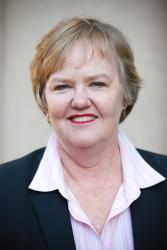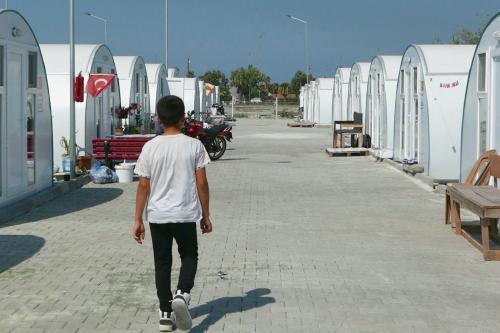Yesterday, on the eve of today’s World Refugee Day, the United Nations High Commissioner for Refugees (UNHCR) released its annual Global Trends report, finding that 65.6 million people are forcibly displaced—the highest number since World War II.
But while references to a global refugee “crisis” have become increasingly common, unpacking the numbers reveals a more nuanced story. For starters, two-thirds of the world’s 65.6 million displaced remain within the borders of their own countries. As internally displaced persons (IDPs), they are often more vulnerable and receive less assistance than those who cross international borders. As I have argued elsewhere, IDPs deserve much more attention, but they pose a different kind of challenge to the international community than refugees crossing borders in search of protection.
Importantly, most of the growth in global displacement figures comes from this internal displacement. And if we’re honest, at least some of that increase is due to greater awareness of the phenomenon of internal displacement and improvements in data collection. The number of IDPs displaced by conflict has almost doubled since 1992—from 25 million to 40.3 million—while the number of refugees under UNHCR’s mandate has actually slightly decreased in the same time period—from 17.8 million in 1992 to 17.2 million in 2016.
If there is a crisis, it is a crisis of internal displacement—not a global refugee crisis. On this World Refugee Day, let’s mobilize much more support to respond to IDPs and to find solutions to their displacement.
With respect to refugees, UNHCR reports that at the end of 2016, there were 17.2 million refugees under its mandate. In comparison, at the end of 2015, the number of refugees stood at 16.1 million. In addition, there are 5.3 million Palestinian refugees under the mandate of the U.N. Relief and Works Administration for Palestine Refugees (UNRWA)—a figure that has doubled since 1990. But that increase is almost entirely due to natural population growth.
While growing numbers of refugees are always a cause for concern, an increase of 1.1 million refugees in a world of 7 billion people should not be a crisis. The fact that increasing numbers of refugees are arriving in Europe—rather than remaining in their regions—seems to driving the impression that we are experiencing an unprecedented crisis.
The crisis is that our international refugee system was set up to respond to short-term emergencies, not to refugee situations that drag on for years and decades. The crisis is that refugees and IDPs spend too many years living in limbo. On this World Refugee Day, let’s think more creatively about how to find solutions for refugees living in protracted displacement. And let us devote more energy and political will to preventing the conflicts that displace people—an issue that the U.N. Secretary-General has highlighted as his priority for action.
World Refugee Day is a time to mobilize support for refugees. And refugees and IDPs worldwide deserve support. The scale of displacement in countries such as Syria, South Sudan, Iraq, and Yemen is massive. Some 65 percent of Syria’s pre-war population is now displaced, including over 6 million IDPs and more than 5 million refugees living in neighboring countries.
We do face a displacement crisis—but it is primarily a crisis of internal displacement, of protracted displacement, of failing to prevent conflicts and of fine-tuning our systems to better address the needs of those forced to flee their communities. It is not a crisis of refugee numbers. At a time of increasing humanitarian needs and pressures on aid budgets, the tendency is to use the language of “crises” to mobilize desperately-needed support. And yet, by doing so, we run the risk of making the problem seem intractable. I suggest we retire the phrase “refugee crisis” for a while—and focus on resolving problems which are—or should be—manageable.




Commentary
Unpacking the numbers on global refugees
June 20, 2017